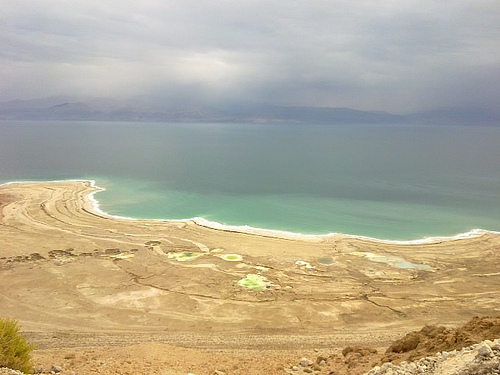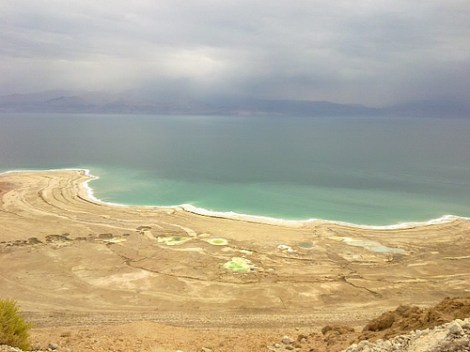The Dead Sea is dying. Confusing, yes, but bear with us. From Bloomberg:
The salty inland lake bordering [Israel and Jordan] dropped a record 1.5 meters (4.9 feet) over the last 12 months because of industry use and evaporation, the Hydrological Service of Israel said. That’s the steepest Dead Sea decline since data-keeping started in the 1950s. Half the drop was caused by Israel Chemicals Ltd. and Jordan’s Arab Potash Co., said Gidon Bromberg, Israeli director of the Friends of Earth Middle East. …
About one-third of the Dead Sea’s surface area has disappeared and sinkholes are increasingly common as the waters shrink amid drought, agricultural diversion, largely from the Jordan River, and pumping to extract minerals for fertilizers.
The Dead Sea’s potash, salts that contain water-soluble potassium, is a popular component of fertilizers. As the sea shrinks, fertilizer manufacturers have come into increasing conflict with the resorts and spas that line Israel’s most popular leisure destination, where visitors come to float on the salty surface. A shrinking sea means a shrinking shoreline for those spas; its north shore dropped 20 kilometers (12 miles) in length over the past 50 years.
One way to approach the problem could be to refill the sea — but recreating the existing mixture is tricky.
Preliminary reports from the Red Sea-Dead Sea Water Conveyance Study Program have shown that mixing sea water, desalination brine or both with Dead Sea water entails risks, especially when amounts exceed 300 million cubic meters a year.
The Dead Sea has a current annual deficit of 700 million cubic meters, Bromberg said. The risks include gypsum and other microorganism growth caused by mixing different types of water.
The sea may not be salvageable. A 2000 report from the Israeli government noted that “reduced water input into the Dead Sea due to anthropogenic causes (management of the Sea of Galilee and the Jordan River) have led to a continuous lowering of sea level.” And last year, scientists suggested that the sea may have dried up completely in the past (so, it’s actually the Zombie Sea?) — and could do so again.
An international team of scientists drilling deep under the bed of the Dead Sea has found evidence that the sea may have dried up during a past warm period similar to predicted scenarios for climate change in coming decades. University of Minnesota College of Science and Engineering professor of earth sciences Emi Ito is one of the researchers on the team.
With nations in the volatile region already running short on water, the finding could be a warning of worse shortages to come, the researchers said.
Like a great Broadway show that’s coming to the end of a run: See it while you can.




